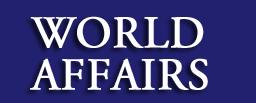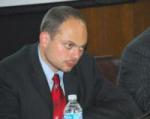Vladimir Kara Murzahttp://www.worldaffairsjournal...This week, the host of analysts and commentators discussing the US presidential campaign were joined by a newcomer. “No elections are organized worse than the American ones, and they don’t want to improve them,” lamented Vladimir Churov, the chairman of Russia’s central electoral commission, who oversaw recent parliamentary and presidential elections in which, according to independent monitors, up to 14 million and 8 million votes (respectively) were “stolen” in the Kremlin’s favor. Russia’s opposition calls Churov a falsifier. At the Duma election, then President Dmitri Medvedev, always a diplomat, called Churov a “magician.” If this is what Churov means by “organizing” elections, America should consider itself complimented.
The recent protests against election fraud forced Churov and his colleagues to modify their tactics: since crude methods, such as the removal of opposition candidates from the ballot or outright vote-rigging, would only reenergize the protest movement (a nightmare scenario for the Kremlin), the authorities are trying a new approach. On October 14th, 73 (of 83) Russian regions will hold local or regional elections. Twenty-three political parties are running for the six regional legislatures, and 22 candidates have been registered for the five gubernatorial polls. Among the various contenders are outspoken opposition figures, such as Yevgenia Chirikova, who has been registered as a mayoral candidate in Khimki; Vladimir Ryzhkov, who heads the lists of the Republican Party of Russia–People’s Freedom Party for the Barnaul city council and the Saratov regional legislature; and Suren Gazaryan, who is running for the Krasnodar regional legislature the Yabloko ticket.
“The authorities are using different, softer techniques to program the election results,” suggested Alexander Kynev of the Golos Association, Russia’s leading independent poll monitoring group. The regime has decided that, since its actual support in elections (even with the control of the media and “administrative resources”) hovers around 30 to 40 percent, it should find a way to win with those numbers.
The chosen method: election “spoilers.” A new federal law passed in response to the winter protests significantly eased the requirements for registering political parties. Alongside genuine opposition groups, such as the Republican Party, the justice ministry has registered dozens of parties, many of which have no recognizable leaders or programs, but have names strikingly similar to those of the existing political organizations. The obvious “spoilers” on the left (directed against the social democratic A Just Russia party and the Communists) include the For Justice party, the Communist Party for Social Justice, and the Communists of Russia party; while such phantom groups as the Democratic Party, Free Citizens Party, and Civic Force are aimed at center-right liberal voters. Furthermore, several people nominated from these parties have the exact same first and last names as the real opposition candidates. The calculation appears to be to dilute anti-Kremlin votes among the multitude of lists and candidates, leaving Vladimir Putin’s United Russia in first place.
Meanwhile, the so-called “municipal filter” introduced in gubernatorial elections (the requirement for gubernatorial candidates to submit signatures from local legislators, a vast majority of whom are controlled by or dependent on the authorities), has meant that genuine opposition contenders were unable to even file their nomination papers, thus relieving electoral commissions of the necessity to bar them from the ballot. “The municipal filter has sifted out serious opposition candidates,” Kynev stressed. “Only quiet and trouble-free people have been allowed [to run for governors].”
Russia’s leaders hope that the new-style “soft” control of elections will help them maintain power while avoiding blatant vote-stealing that may bring people onto the streets in even larger numbers than last winter. This strategy is not likely to succeed. As past experience (including Russia’s own experience in the late 1980s and early 1990s) has shown, no “spoilers” or “filters” can suppress a genuine wave of popular opposition. According to an August poll by the Levada Center, 71 percent of Russians do not want to see either Putin or Medvedev in the Kremlin past 2018.
Photo Credit: Lite
* Vladimir Kara-Murza's blog


